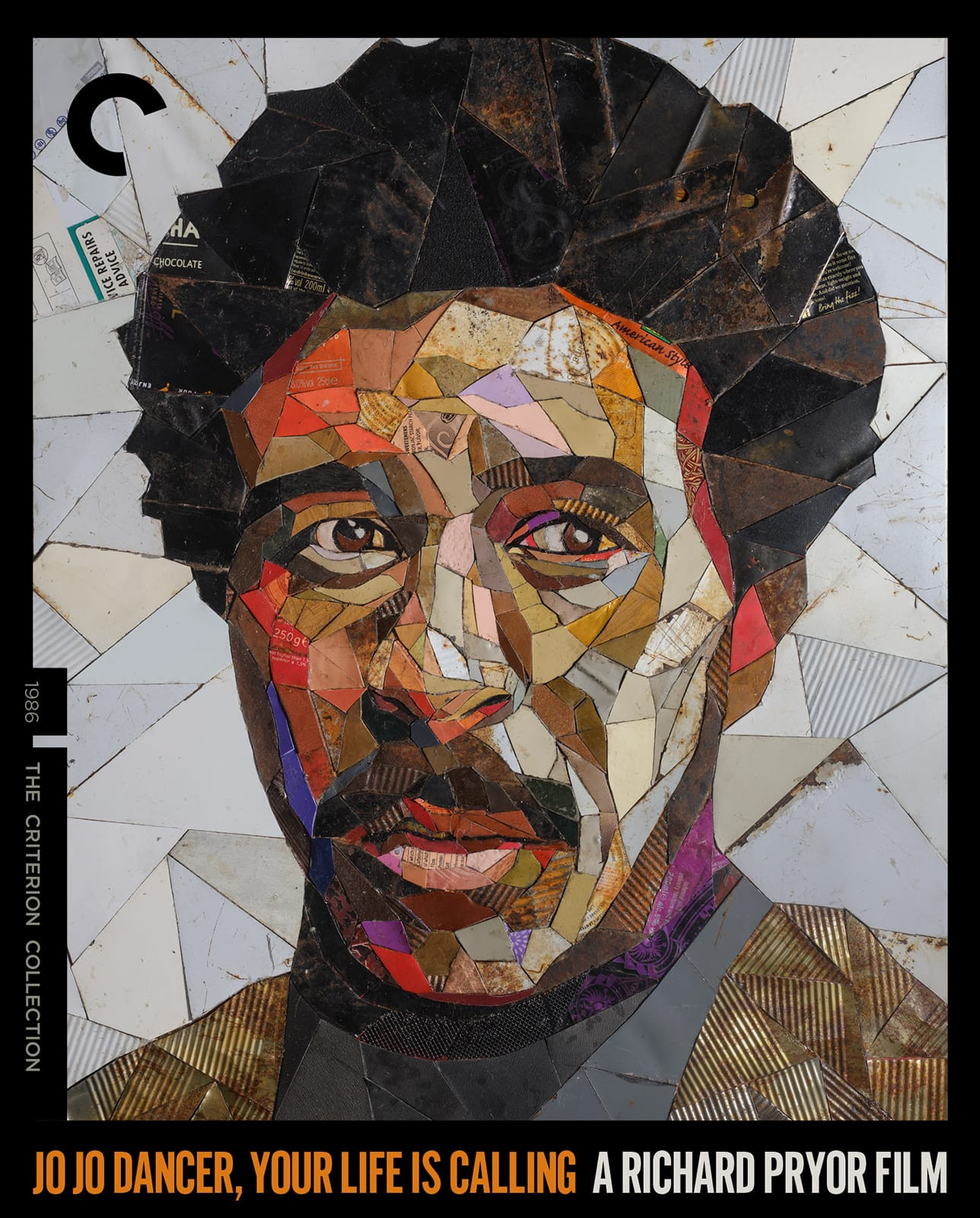Richard Pryor’s 1986 film, Jo Jo Dancer, Your Life is Calling, stands as a powerful testament to self-examination and artistic courage. More than just a biographical drama, Jo Jo Dancer, Your Life is Calling offers a raw and unflinching look at the life of a comedian, mirroring Pryor’s own journey through fame, personal struggles, and ultimately, self-discovery. This Criterion Collection release invites viewers to delve deep into Pryor’s introspective work, a film that is both a “lacerating self-excoriation and radical act of self-love.”
 Richard Pryor in Jo Jo Dancer, Your Life is Calling movie, reflecting on his life and career.
Richard Pryor in Jo Jo Dancer, Your Life is Calling movie, reflecting on his life and career.
Richard Pryor’s Directorial Vision and Autobiographical Depth
For his sole directorial venture, Richard Pryor chose to turn the camera inward, creating a semi-autobiographical narrative that echoes the structure of It’s a Wonderful Life, but with a starkly different emotional landscape. Jo Jo Dancer, Your Life is Calling doesn’t shy away from the darkest corners of Pryor’s life, beginning with the harrowing self-immolation incident that serves as a catalyst for introspection. This bold opening sets the stage for a film that is as much about confronting personal demons as it is about celebrating resilience. Pryor’s willingness to expose his vulnerabilities on screen is not merely brave; it’s a fundamental aspect of his artistic expression.
Meta-textual Narrative and Dramatic Strength
The film cleverly employs a meta-textual approach, featuring Pryor as both Jo Jo Dancer and his alter ego. This narrative device allows for a unique dialogue between different facets of the protagonist’s personality, enhancing the film’s reflective quality. While Jo Jo Dancer, Your Life is Calling functions effectively as a straightforward drama, its meta-textual layers elevate it, offering a richer viewing experience. The script, co-written by Pryor, Paul Mooney, and Rocco Urbisci, meticulously charts Jo Jo’s life arc, from a difficult childhood in a brothel to his rise in stand-up comedy and his battles with addiction. The narrative arc is inherently compelling, providing a sturdy backbone to Pryor’s introspective exploration.
Themes of Self-Reflection and Redemption
At its core, Jo Jo Dancer, Your Life is Calling explores profound themes of self-reflection and the possibility of redemption. The conversations between Jo Jo and his alter ego are particularly impactful, highlighting the complexities of self-perception and the struggle for personal growth. The film poignantly captures the limitations of offering advice to one’s younger self, yet it underscores the importance of recognizing the potential for change. It’s this potential, the movie suggests, that sustains us through life’s most challenging moments. The film’s structure, interweaving Jo Jo’s past with his present hospital stay, amplifies the question of whether life is worth fighting for, ultimately portraying Jo Jo’s survival as an act of grace and self-compassion.
Criterion Collection Release and Special Features
The Criterion Collection’s release of Jo Jo Dancer, Your Life is Calling enriches the viewing experience with supplementary materials that provide deeper insights into Pryor’s life and work. Although the special features are not as extensive as some Criterion releases, they offer valuable context. Robert Townsend’s interview provides a warm, personal perspective on Pryor from a close friend. The inclusion of a 1985 Dick Cavett Show episode is particularly compelling, showcasing Pryor’s raw vulnerability and the intense emotional weight he carried. This interview, where Pryor and Cavett discuss childhood sexual abuse, reveals the depth of Pryor’s pain and his reliance on therapy, underscoring his lifelong struggles and his immense courage.
Conclusion
Jo Jo Dancer, Your Life is Calling is more than just a movie; it is a deeply personal and courageous artistic statement from Richard Pryor. Through its meta-textual narrative and unflinching self-portrait, the film offers a powerful exploration of self-excoriation and self-love. Pryor’s vulnerability, evident both in the film and the Criterion Collection’s supplementary materials, cements his legacy as a vital and enduring voice in American comedy and cinema. Twenty years after his death, Jo Jo Dancer, Your Life is Calling remains a relevant and resonant work, urging viewers to confront their own lives with the same honesty and courage that Pryor displayed.
